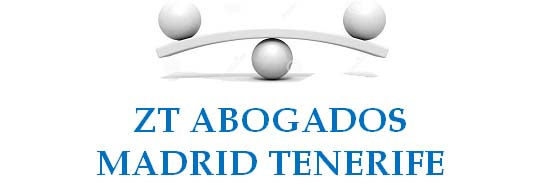IRPH CLAUSE IN THE LIGHT OF THE CJEU JUDGMENT
In light of the ruling of the Court of Justice of the European Union dated 3rd March 2020, we will try to make a review as clear as possible in relation to the famous IRPH clause and its eventual consideration as abusive.
What is IRPH (Mortgage Loan Reference Index)
The acronym IRPH stands for Mortgage Loan Reference Index. To understand what the IRPH clause is, we must say that it is a financial clause used by banks in many cases as a means to set the variable interest rate to apply to the mortgage loan. Perhaps the best known is the Euribor (which is also a way to determine the applicable variable interest). To determine the interest rate, a reference index is used, which in this case is the "rate of mortgage loans over three years" and which is set by the Bank of Spain. Technically, the index would be "the simple average of the weighted average interest rates of the loan operations with mortgage guarantee for a term equal to or more than three years for the acquisition of free housing initiated or renewed by banks and savings banks in the month to which the index refers”. As we can see, somewhat difficult to understand but that basically would be an average between all the interest rates on the loans of all the banks.
Problem with these financial clauses:
The financial clauses referenced to the IRPH are supposed to have the following problem: despite being presented to consumers as a more favourable and more stable index, reality leads to their application making the price of the mortgage more expensive as it is an index much higher than the Euribor (between 1.5% and 3% higher). In fact, after the real estate crisis, the Euribor began to decline (even reaching negative values) while the IRPH remained at values close to 2%. Remember that the index would then be added to the differential.
However, the fact that the IRPH was more expensive than other indices does not make it abusive. In other words, it is not the index itself that would be abusive, but rather its commercialization by banks, since it would be difficult for the consumer to know an index whose understanding is very difficult even for a banking professional.
Errors in the IRPH calculation procedure:
The first mistake in the IRPH calculation procedure is to assume that each of the financial entities has the same weight, that is, they have the same number of elements (operations). If we calculate the average of their average, we would be distorting the objective of the measures of central tendency (IRPH objective).
The second error of the IRPH calculation procedure would be to obviate the existence of atypical data and the distortion that they produce in the results and to continue using the arithmetic mean as an indicator of centrality, leaving aside the use of more robust central tendency indices. This error was corrected in the formula used by the Euribor (hence it is the most widely used method) where we work with shortened measures, which enables the result obtained to better respond to what is intended to be achieved: an indicator of the central tendency of credits granted / renewed in certain periods of time. What comes to mean, in other words, that the IRPH index is subject to manipulation and not certain.
Transparency criteria - Jurisdictional control
Ultimately, it is a matter of determining by the courts whether the IRPH clause exceeds the transparency control. The CJEU has already said in a ruling of March 3, 2020 that the IRPH clause is subject to the control of national judges who can determine whether or not said clause is transparent. Furthermore, it is up to said judge to determine whether, according to the circumstances of the specific case, the clause meets the requirements of good faith, balance and transparency. And fundamentally, that the national court must determine whether the clause in question is not only understandable on a formal and grammatical level but must be interpreted extensively in a way that “enables the average consumer, normally informed and reasonably attentive and insightful, to be in a position to understand the specific operation of the method of calculating said interest rate and thus assess, based on precise and understandable criteria, the potentially significant economic consequences of such clause on its financial obligations ".
In short, that the clause is explained in terms that any consumer can understand beyond unclear technicalities.
What happens if the clause is declared abusive
The CJEU ruling recognizes the national judge the possibility of substituting the IRPH for a supplementary benchmark. We should understand that such an index would be the Euribor. The replacement of the IRPH by another index would mean that the financial institution would be obliged to repay the excess that the borrower had paid for the application of the disputed clause.
Despite the annulment of the abusive IRPH clause, perhaps the most sensitive issue for consumers would be that the solution would be in the hands of the judges. That is to say, there is currently no way other than to go to court to declare the abusiveness of the clause and the replacement of the index by another (Euribor).












